Aissa Sweets blends Syrian flavor with innovation
|
Published: 06-07-2024 4:25 PM
Modified: 06-11-2024 2:24 PM |
Ahmad Aissa, owner of Concord’s Aissa Sweets, said his favorite part of owning his wholesale bakery is innovation.
“That’s [the] area I love, fixing machines, assembling production lines, make sure we can output, let’s say, a ton per day and stuff, instead of a few trays of croissants,” he said.
Innovation is key when the business is wholesale baked goods, walking the fine line between freshness and mass production. For Aissa, the key is quality, organic ingredients, as well as those that are locally made.
Launched in 2012, Aissa Sweets brings a little Syrian flavor to New Hampshire. The business lives within the Concord Business Center on Hall Street. While it was initially housed on North State Street and used to have a retail component on site, that has since been closed to clear the way for wholesale.
When he came to New Hampshire from Syria, leaving because of intensifying conflict, Aissa said he needed to learn English and knew the clothing production and manufacturing business he owned with his brother in Syria wasn’t a good fit for Concord.
“My struggle was my English language was very limited,” Aissa said. “So I really wanted to be able to develop my English language at the same time, [and] also try to do something where I’m like, ‘Okay, I can safely do this, and I’m not going to run into trouble because my English is limited.’ ”
A business model like wholesaling let Aissa learn English as he went since it was mostly minor communication with grocers and buyers.
He used his business experience, something he’d been developing since he was a teenager, to find something that Concord didn’t have: good baklava, especially in grocery stores. He noticed most around was mass-produced and from bigger brands.
Article continues after...
Yesterday's Most Read Articles
 Blasting set at Swenson Granite quarry, which may resume full operations this summer
Blasting set at Swenson Granite quarry, which may resume full operations this summer
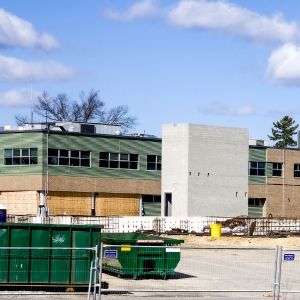 Work continues on new state psychiatric hospital in Concord
Work continues on new state psychiatric hospital in Concord
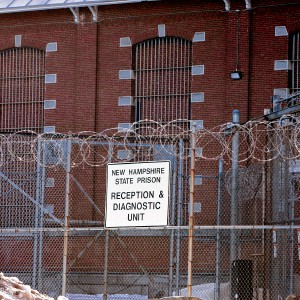 As part of sweeping cuts, House budget writers vote to abolish nearly 200 positions from N.H. Department of Corrections
As part of sweeping cuts, House budget writers vote to abolish nearly 200 positions from N.H. Department of Corrections
 New Hampshire law enforcement to step up traffic enforcement on Route 106
New Hampshire law enforcement to step up traffic enforcement on Route 106
 Three arrested in connection with vandalism of Satanic Temple holiday display
Three arrested in connection with vandalism of Satanic Temple holiday display
 A New Hampshire ski resort bets on tech to compete with industry giants
A New Hampshire ski resort bets on tech to compete with industry giants
“I thought we’ll … bring something different to the table,” said Aissa.
The idea started from making baklava for his in-laws, New Hampshire natives, who loved it. Aissa learned to make dessert back in Syria as a hobby. He said he never would have thought it would evolve into a business.
After successfully testing the product, Aissa Sweets began wholesaling the dessert.
He said that using quality, organic, fresh ingredients leads to something that not only tastes much better but also ends up being much more authentic to the food’s roots. The business also uses local ingredients whenever possible, providing better ingredients and also the opportunity to support other local small businesses.
“And since then, we’ve been kind of working on scaling up production, making the product with really good ingredients,” Aissa said. “Because most of the products available are made with cheap oil, preservatives, the syrup is kind of weird… [their] flavor profile is not that great.”
Now Aissa Sweets sells across the U.S. in Whole Foods, and in New Hampshire in Hannafords as well as a slew of other smaller distributors. They’ve recently added a spinach and feta cheese pie that is available in local Market Baskets.
Middle Eastern food is receiving attention, according to Aissa, such as things like frozen falafel and different spices that are much more accessible compared to even two or three years ago.
Aissa said he uses pastries to connect Syrian culture with American culture: food is a common denominator that everyone resonates with – especially good food.
Aissa explained that Syrian food is a mix of Middle Eastern cuisines. Think Lebanese, various Mediterranean influences, all the way up to southern Turkey.
“There’s an argument about whether baklava is Greek or not… It is Syrian, but [also] Greek… It’s definitely not Turkish, sorry,” Aissa laughed. “But, either way, it doesn’t matter, if it’s good baklava then it’s good baklava.”
Aissa explained the different nuts that baklava can be made from. Syrian baklava was made with the Antep pistachio, which is much more rich and oily than dry California pistachios, and a brighter green. Unfortunately, it is no longer available, since it has been mixed with the Californian breed. Pistachios are so expensive that Aissa did not mind switching to the walnut, which Americans are more familiar with in baklava.
Syrian baklava uses less syrup and has a very crisp and crunchy texture. Aissa said that the business keeps these qualities, adds a generous amount of filling, and combined with the attention to ingredients, creates a baklava above the rest.
“We obviously evolved for the American palate while maintaining some characteristics of the Syrian baklava,” said Aissa.
While the specialized ingredients are very expensive, it’s one of the main elements that makes the products special. He said that at the end of the day, you have to have that “sweet price point.”
Aissa also spoke about being a small business in a big grocery world. There are different margins for manufactured products like his that go to a supermarket, and a lot of buyers from big stores are surprised and skeptical about a “small” family business going into wholesaling.
Nevertheless, Aissa likes his family business. Aissa’s wife, Evelyn, does the financials, and they sometimes bring their nine-year-old daughter around the space. Aissa Sweets has never failed to fill an order.
Adding automation helps Aissa Sweets reach the high capacity they’re at, while keeping prices down. Don’t worry, though, human employees still have key roles running dough assembly lines and jobs independent of the shiny silver machines. They maintain the craft element of the business and aid the process of creating a quality product.
Aissa said he would love to bring back the retail space where they can test out new recipes. Right now, however, they are not in a spot where they can dedicate enough people, time, and funds to a whole customer service operation alongside wholesale. Aissa would rather wait for the right time than rush anything out, so that’s “still cooking.”
Aissa Sweets is sending out about five to eight thousand pounds of pastries a month, on average. They are competing with large, international companies, which Aissa is happy with.

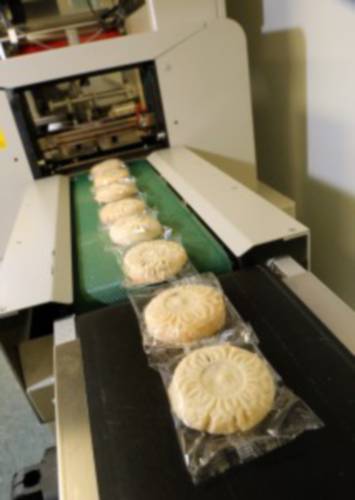
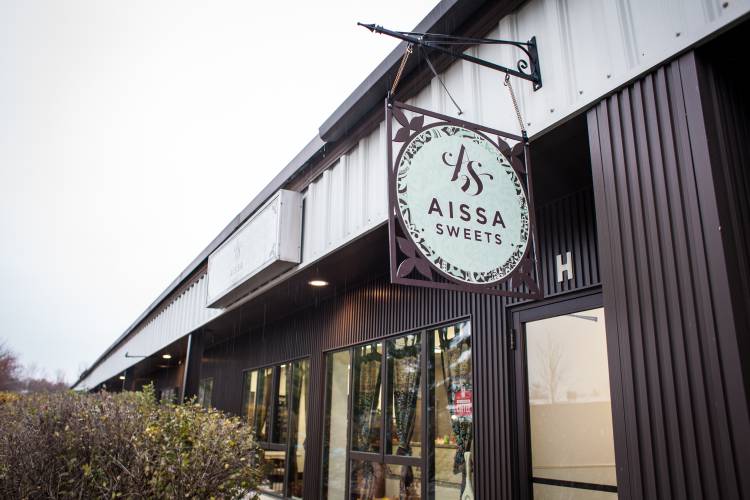
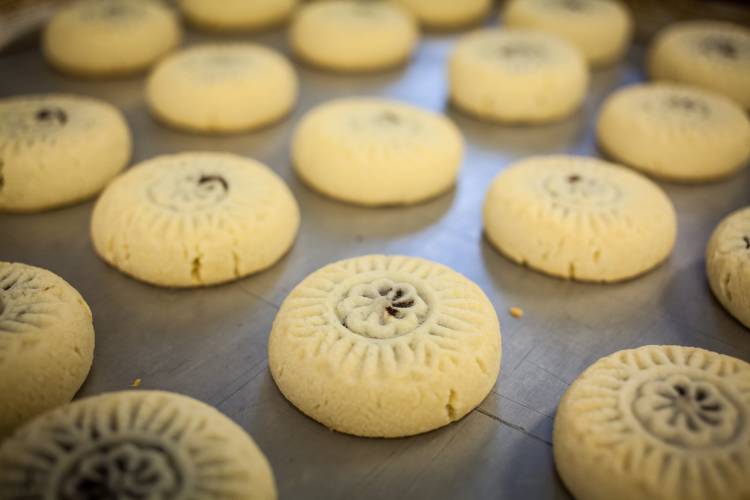
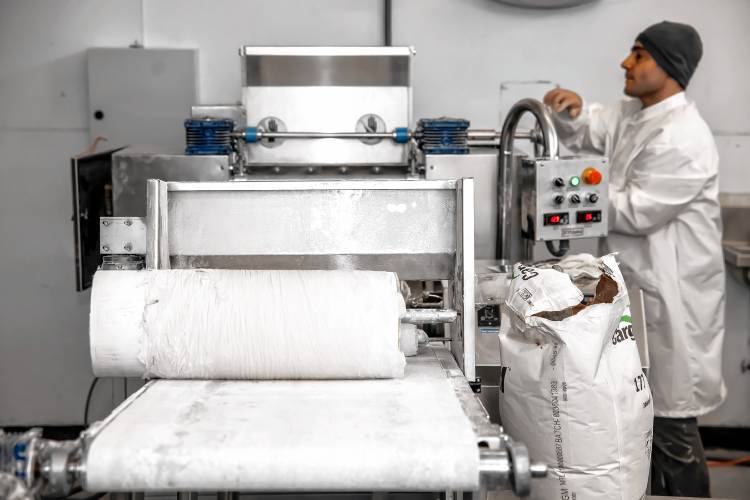
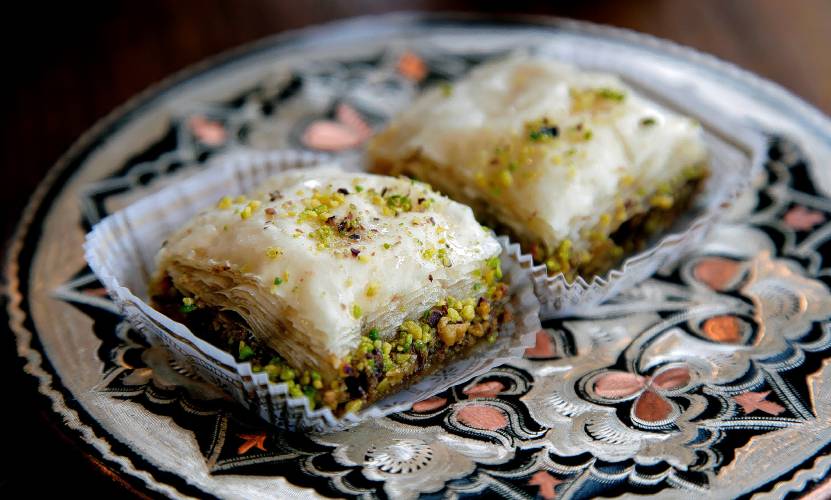
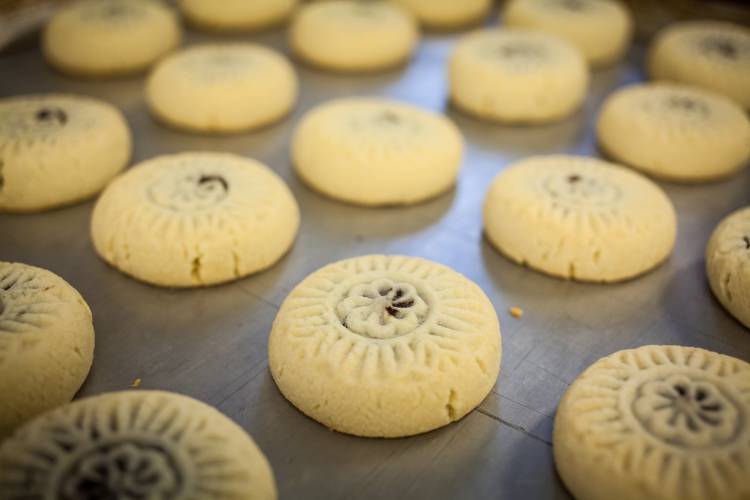
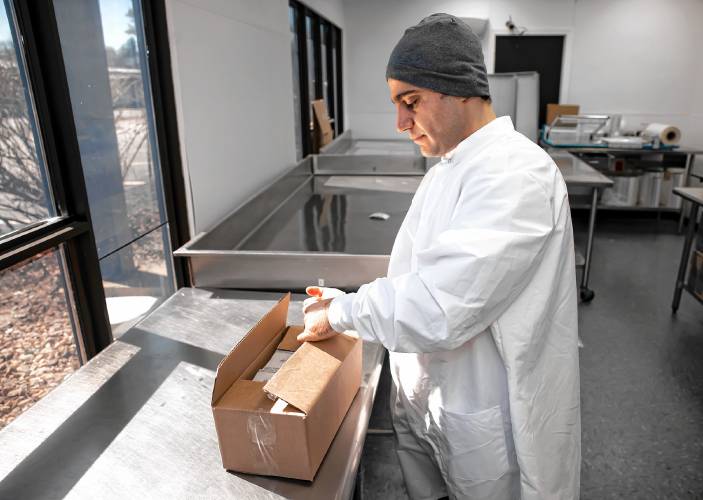
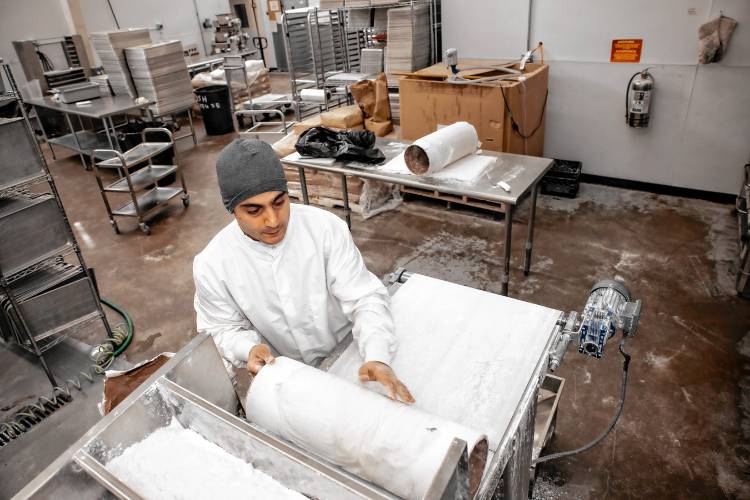
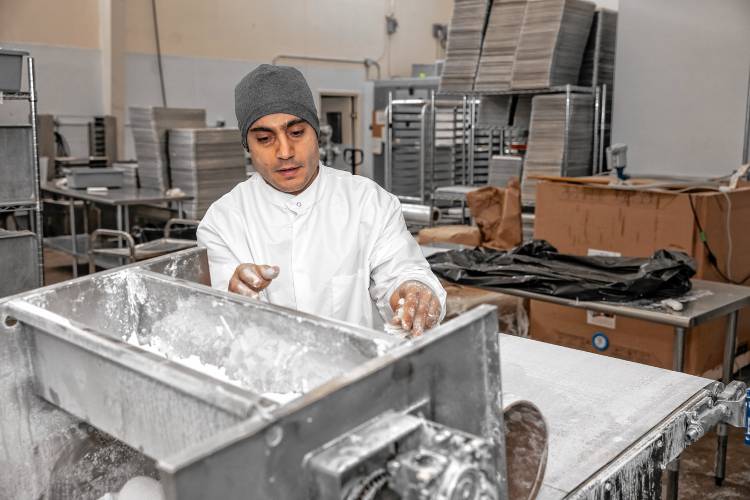
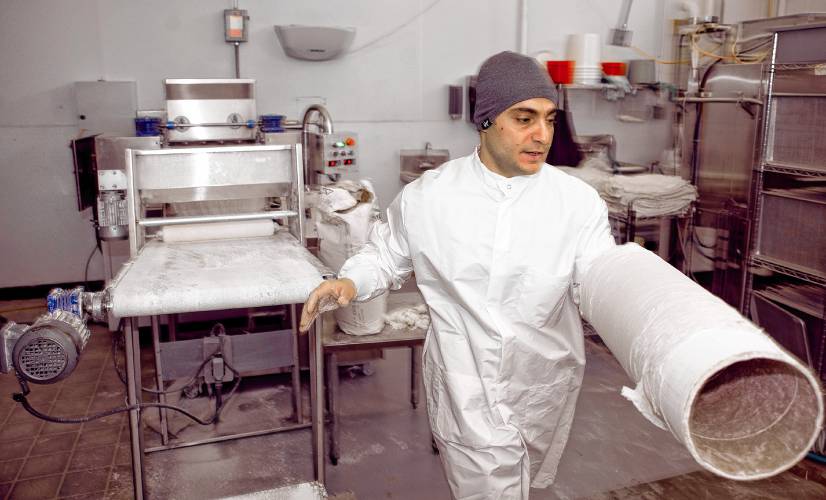
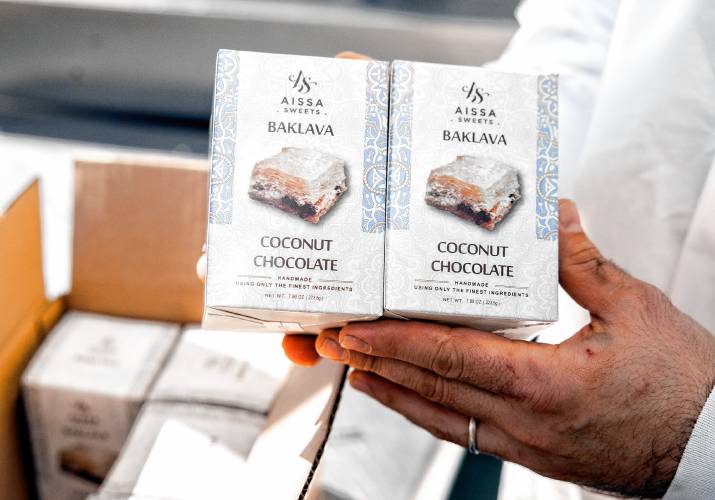






 Henniker ponders what is a ‘need’ and what is a ‘want’
Henniker ponders what is a ‘need’ and what is a ‘want’ Boscawen residents vote to fund major renovation of public works building
Boscawen residents vote to fund major renovation of public works building ‘Voting our wallets’: Loudon residents vote overwhelmingly against $1.7M bond for new fire truck
‘Voting our wallets’: Loudon residents vote overwhelmingly against $1.7M bond for new fire truck In Pembroke, Education Freedom Accounts draw debate, voters pass budget
In Pembroke, Education Freedom Accounts draw debate, voters pass budget
